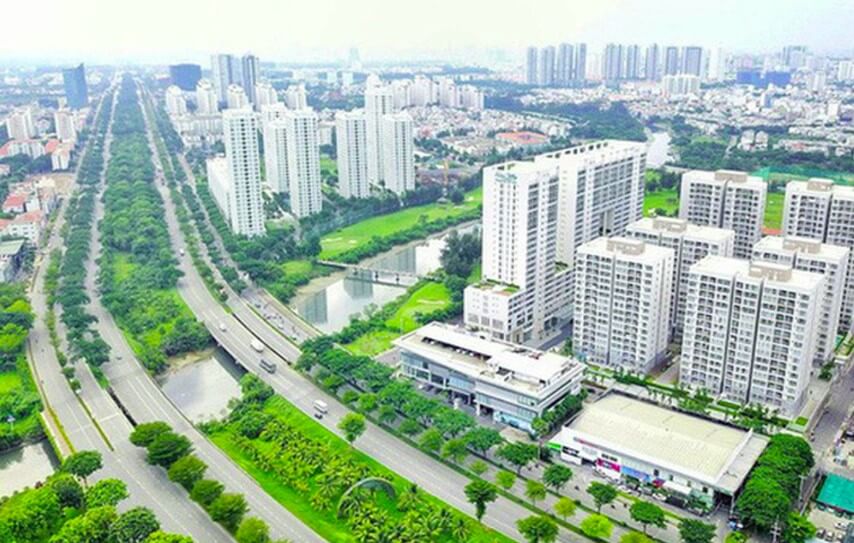How are civil cases without mediation handled in Vietnam?

Recently, LSX legal firm has received a question: “I am the defendant in a civil case. I have been summoned by the Court for the second time, but I do not want to participate in the mediation, is it illegal? Will the trial continue without my participation? Will my case be considered a civil case that cannot be mediated?”
In this article, LSX legal firm will inform you the regulations to answer the question: “How are civil cases without mediation handled in Vietnam?”
Legal ground
- Civil Procedures Code 2015
Regulations on mediation in civil proceedings
Article 10 of the 2015 Civil Procedure Code provides for conciliation in civil proceedings as follows: “The Courts have the responsibility to conduct mediation and create favorable conditions for the involved parties to reach an agreement with one another on the resolution of civil cases under the provisions of this Code.”
Besides, mediation by the Court must comply with the provisions of law and meet the mediation principles specified in Article 205 of the 2015 Civil Procedure Code.
- During the period of preparation for the first-instance trial over cases, the Courts must carry out mediation for the involved parties to reach an agreement on the resolution of the cases, except for cases which must not mediate or cannot mediate as stipulated in Articles 206 and 207 of this Code or cases settled under simplified procedures.
The principles of mediation:
- Firstly, respect for the voluntary agreement of the involved parties, non-use of force or non-threat to use force to compel the involved parties to reach agreements against their will;
- Secondly, the contents of agreements between the involved parties must not contravene the law and social ethics.
Procedures for conciliation
Procedures for mediation:
- Firstly, the Judges disseminate to involved parties the provisions of laws related to the resolution of the cases so that involved parties can relate them with their rights and obligations and analyze the legal consequence of the success of the mediation then voluntarily reach agreements with each other about the resolution of the cases;
- Secondly, plaintiff and defense counsels of their legitimate rights and interests make presentations of the disputes, make amendments of petitions for initiating lawsuits; grounds for protecting the petition, and express opinions about matters needing mediation and resolution of the cases (if any);
- Thirdly, defendants and defense counsels of their legitimate rights and interests make presentations of the claims of the plaintiffs and about counter-claims (if any); grounds for protesting against the petition of the plaintiffs; grounds for defending their counter claims and express opinions about matters needing mediation and resolution of the cases (if any);
- Fourthly, persons with relevant interests and duties, defense counsels of their legitimate rights and interests express their opinions about the claims of the plaintiffs and the defendants; present their independent claims (if any); grounds for protesting against the claims of the plaintiffs and the defendants; grounds for protecting their independent claims and express opinions about matters needing mediation and resolution of the cases (if any);
- Fifthly, other participants in the mediation meetings (if any) express their opinions;
- Then, when involved parties and defense counsels of their legitimate rights and interests have expressed their opinions, the Judges shall determine matters that involved parties have or have not agreed about and request involved parties to make an additional presentation about unclear and not agreed contents;
- Lastly, the Judges shall make a conclusion of those which involved parties have agreed or not agreed about.
Unreconciliation civil cases
The court takes responsibility for conciliation and creating favorable conditions for the involved parties to reach an agreement, a fundamental principle in civil proceedings and conciliation brings many benefits to both the litigants and the court. However, the Civil Procedure Code 2015 also stipulates cases where conciliation procedures cannot be carried out or conciliation is not possible in civil proceedings, in particular:
Article 206. Civil lawsuits which must not be mediated
1. Claims for compensation for damage caused to State properties.
2. Civil lawsuits arising from civil transactions which are contrary to law or social ethics.
Article 207. Civil lawsuits which cannot be mediated
1. The defendants or the persons with relevant interests and duties are intentionally absent though having been duly summoned twice by courts.
2. The involved parties cannot take part in the mediation for plausible reasons.
3. The involved parties being wives or husbands in divorce cases have lost their civil act capacity.
4. One of the involved parties applies for non-mediation.
How are civil cases without mediation handled?
In case a civil case can not be conciliated or must not be conciliated, it will be settled according to Article 208 of the Civil Procedure Code 2015.
- The Judges shall hold meetings for checking the handover of, access to, and disclosure of evidence and mediate between involved parties. Before holding the meetings, the Judges shall notify the involved parties, their lawful representatives, and defense counsels of their rights and interests in the time, venue, and contents of the meetings.
- If the mediation over the civil lawsuits cannot conducted as prescribed in Articles 206 and 207 of this Code; the Judge shall hold the meetings for checking the handover of, access to, and disclosure of evidence without mediation.
- Regarding marriage and family cases involving minors, before holding the meetings for checking the handover of, access to; and disclosure of evidence and mediating between involved parties, the Judges and/or Ombudspersons assigned by the Courts shall collect materials and evidence to determine reasons for the arising of the disputes. When necessary, the Judges may refer to the opinions of family affair authorities and children affair authorities about the situations of the families, reasons for the arising of disputes, and the expectation of the wives, husbands, and children related to the cases.
Regarding disputes over child rearing after divorces or change of post-divorce child custodian; the Judges shall depend on the expectation of the children who are underage and not younger than 7; when necessary, representatives of family affair authorities and children affair authorities shall witness and contribute opinions…
Thus, for these cases, the judge shall hold a meeting to examine the handover, access; and publicity of evidence without conducting any mediation procedures.
Legal service of LSX Legal Firm
LSX legal firm provides legal services to clients in various legal areas. To make your case convenient, LSX will perform:
- Legal advice related to new regulations in business suspension;
- Representing in drafting and editing documents;
- We commit the papers to be valid, and legal for use in all cases;
- Represent to submit documents, receive results, and hand them over to customers.
With a team of experienced, reputable, and professional consultants; The firm is always ready to support and work with clients to solve legal difficulties.
Furthermore, using our service, you do not need to do the paperwork yourself; We guarantee to help you prepare documents effectively and legally.
Also, you will not have to waste time preparing the application, submitting application, or receiving results. At those stages, we will help you do it smoothly.
After all, LSX provides the service with the desire that customers can experience it the best way. Additionally, we guarantee the cost to be the most suitable and economical for customers.
Related articles
- How to check a business for tax evasion in Vietnam?
- Procedures for changing property owners when merging businesses in Vietnam
- Violation of business without a license in Vietnam
Related questions
a) Date of meeting;
b) Place of meeting;
c) The participants in the meeting;
d) Opinions of involved parties or lawful representatives of involved parties about contents specified in clause 2 Article 210 of this Code;
dd) Other contents;
e) Decisions of the Court to accept or not accept claims of involved parties.
The decisions to recognize the involved parties’ agreements shall take effect immediately after the issuance.
The judge shall issue a decision to recognize the agreement of the involved parties in case the involved parties can reach an agreement on the settlement.
After seven days from the date of making the minutes of successful conciliation, if no involved parties change their opinions about such agreement, the judge presiding over the conciliation session shall issue a decision to recognize the agreement of the involved parties. If due to objective obstacles the judge cannot make a decision, the chief judge of the court shall assign another judge to issue a decision to recognize the agreement of the involved parties.
Contact LSX
Finally, hope this article is useful for you to answer the question about “How are civil cases without mediation handled in Vietnam?”. If you need any further information, please contact LSX Law firm: +84846175333 or Email: [email protected]
Conclusion: So the above is How are civil cases without mediation handled in Vietnam?. Hopefully with this article can help you in life, please always follow and read our good articles on the website: lsxlawfirm.com




